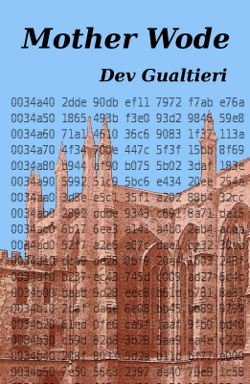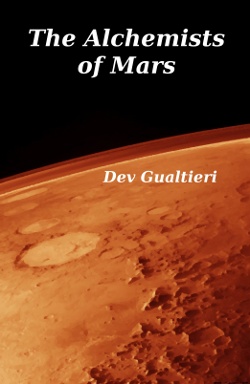Scientist Novelists
June 15, 2012
As readers of my blog must surmise, I enjoy writing. As any practicing
scientist knows,
science involves as much writing as
experiment. Foremost, there are the articles that you write for publication in
scholarly journals; and, perhaps,
a few patent applications. Concurrent with this writing are the
research proposals, quarterly and annual
reports. Everyone needs to justify his
paycheck.
Quite a few scientists have taken to writing
science fiction. The
astronomer,
Fred Hoyle, who championed
steady state cosmology against increasing evidence for the
Big Bang theory, is a prime example.
Sir Fred was an author of nineteen science fiction books, most of which were coauthored with his son,
Geoffrey Hoyle.
Isaac Asimov, who wrote hundreds of books, was a
biochemist. Surprisingly, for someone who wrote about people routinely criss-crossing the
galaxy in
spacecraft, Asimov was
afraid of flying. I've read many of his short stories, and I quite enjoyed his original
Foundation Trilogy, since expanded. This trilogy includes an early vision of
societal computer models.
Charles Sheffield was a
mathematician and
physicist. His works are well-regarded, but I don't recall reading any of them. Sheffield was a
president of the
Science Fiction and Fantasy Writers of America.
One contemporary and prolific SF author is physicist,
Gregory Benford. I've read quite a few of his novels, and I've enjoyed them all. One reason that I like them is that they include quite a bit of
speculative, but believable, science. This is what's called, "
hard science fiction." The reader can actually imagine things in his novels happening without too much of that "
willing suspension of disbelief."
Greg Egan is an author who also specializes in hard science fiction. Egan has a bachelor's degree in mathematics, and for a time he was a
computer programmer. He's even coauthor of a
mathematics paper on arXiv.[1]
Another practitioner of hard science fiction is
David Brin, who has a Ph.D. from the
University of California, San Diego, with credentials in
applied physics and
astrophysics. Brin has a
website, replete with many interesting things.
Paul McEuen, who is presently running for
Chair-Elect of the Nominating Committee of the
American Physical Society, published his first SF novel,
Spiral, last year. McEuen, who is a professor at
Cornell University, apparently took
Mark Twain's advice that an author should
write about what he knows. The plot of Spiral involves the murder of an emeritus Cornell
biology professor. McEuen is also an expert on
carbon nanotubes, so I'm hoping that
Mildred Dresselhaus will appear as a
protagonist in his next book.
Mark Twain, who was not a scientist, has some science fiction credentials. Twain was apparently very interested in science, and he was a friend of
Nikola Tesla, whom I wrote about in a
recent article (Tesla and Schumann, June 1, 2012). Twain
patented three simple
inventions; and his novel, "
A Connecticut Yankee in King Arthur's Court," involves
time travel and a few
technological feats that the time traveller uses to gain power in
Arthurian England.
I've likely left out quite a few scientist-authors in this brief review; but, why am I writing on this topic? The reason is that I've joined the ranks of scientist-authors with publication of two hard science fiction books, as shown below. These books are available in
paperback and
eBook form from
Amazon and other distributors.[2]

Mother Wode
Computer scientists will enjoy this book. The protagonists are a computer science graduate student, within months of his PhD; a female computer scientist working for a large corporation; and a computer hacker with a shady third-world past.
The team discovers a plot to control electronic financial transactions, and they attempt to discover its source.
(Click image for details.)
![]()

The Alchemists of Mars
Could alchemists of the fourteenth century build a nuclear reactor and use quantum entanglement to teleport themselves to Mars?
This is definitely not a "space opera" science fiction novel. It's heavy on the science, and it includes a believable set of scientists and engineers who attempt contact with these people who have lived on Mars for many centuries.
(Click image for details.)
I once visited a web site that gave an analysis of what writer you were most like. The answer palette must have been limited, but the answer I got was
Hal Clement, the pen name for Harry Clement Stubbs (1922 - 2003), one of the first hard science fiction authors. Clement received a B.S. in
astronomy from
Harvard in 1943, and an M.S. in
chemistry from
Simmons College in 1963. There's a "Hal Clement Award for Young Adults for Excellence in Children's Science Fiction Literature" presented annually at
Worldcon.
References:
- J. Daniel Christensen and Greg Egan, "An efficient algorithm for the Riemannian 10j symbols," arXiv Preprint Server, January 24, 2002.
- Tikalon Press Web Site.
Permanent Link to this article
Linked Keywords: Scientist; science experiment; scientific literature; scholarly journal; patent application; research proposal; report; paycheck; science fiction; astronomer; Fred Hoyle; steady state cosmology; Big Bang theory; Order of the British Empire; Sir Fred; Geoffrey Hoyle; Isaac Asimov; biochemist; Milky Way; galaxy; spacecraft; pteromerhanophobia; fear of flying; Foundation series; Foundation Trilogy; society; societal; computer simulation; computer model; Charles Sheffield; mathematician; physicist; president; Science Fiction and Fantasy Writers of America; Gregory Benford; speculative fiction; speculative; hard science fiction; willing suspension of disbelief; Greg Egan; computer programmer; arXiv; David Brin; University of California, San Diego; applied physics; astrophysics; www.davidbrin.com; Paul McEuen; Chair-Elect of the Nominating Committee; American Physical Society; Spiral; Cornell University; Mark Twain; write about what you know; biology; carbon nanotube; Mildred Dresselhaus; protagonist; Nikola Tesla; patent; invention; A Connecticut Yankee in King Arthur's Court; time travel; technology; technological; King Arthur; Arthurian Englan; paperback; E-book; eBook; Amazon; Mother Wode; computer scientist; computer hacker; developing country; third-world; The Alchemists of Mars; alchemy; alchemist; nuclear reactor; quantum entanglement; teleportation; teleport; Mars; space opera; Hal Clement; astronomy; Harvard; chemistry; Simmons College; Worldcon; www.tikalonpress.com; Tikalon Press.